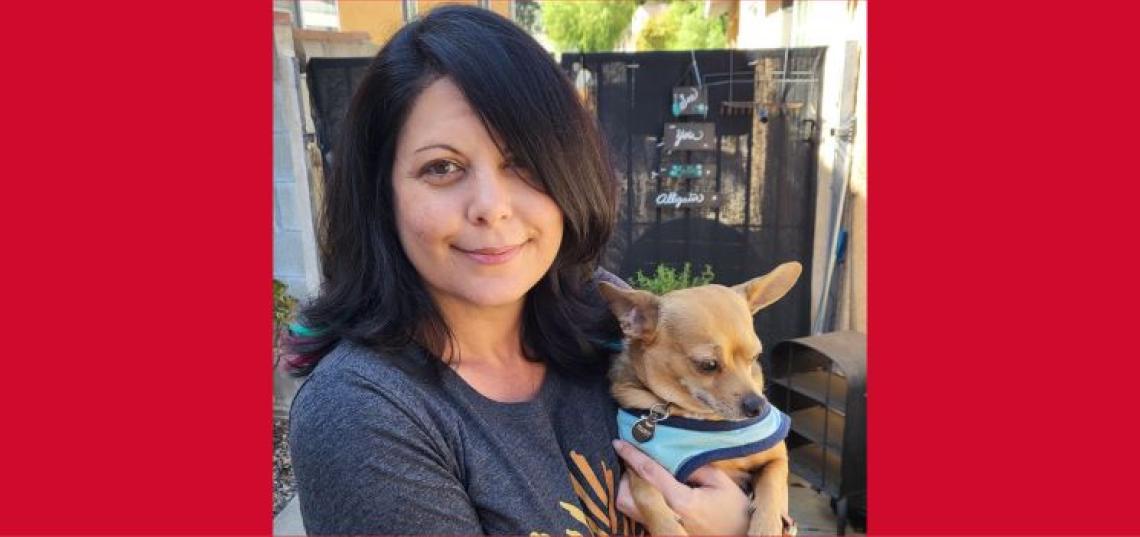
Melanie Benezet is Senior Director of Film Delivery and Operations at Universal Pictures, where her primary responsibility entails ensuring that all physical and digital assets for each film are received for distribution and archival purposes and that these assets are easily accessible to anyone that needs them. She holds a B.A. in French Linguistics from Grand Valley State University and a Master in Studies of Law from the University of Southern California. In 2022, she earned a Digital Asset Management (DAM) certificate through SC&I’s Continuing and Professional Studies Department.
SC&I: What drew you to SC&I's Digital Asset Management (DAM) certificate program?
MB: In 2019, I attended a conference where I first heard DAM Program Co-Academic Director Yonah Levenson speak about the Language Metadata Table initiative, and I was blown away by the sheer enormity of the project and its significance. I connected with Levenson after that conference because I wanted to stay in contact and keep up on the progress of such an admirable project. In 2020, I learned about the DAM Certificate program; I was finishing a master's program at USC, so I knew the timing wasn't right. However, after I finished that degree, I reached out to Levenson to learn more. I knew the DAM certificate program would give me the essential framework and tools to move forward with some conceptual ideas I had for improvements at work.
SC&I: What skills and insights did you learn?
MB: Overall, I learned much from this program and took away valuable information to add to my arsenal with each class. What I especially appreciated was the ability to directly apply aspects of my current role to the assignments, so not only was I able to gain more knowledge, but I had something I could immediately use at work.
"The Evolving World of DAM," taught by DAM Program Co-Academic Director David Lipsey, was a great kickoff to the entire program. While I had already been working in DAM organizing assets, it made me stop and consider what digital assets are and analyze their characteristics more granularly. This class gives an excellent foundation and makes you think about a more holistic view of DAM and how it can serve organizations with varying needs.
Taking "Introduction to Metadata" (now "Metadata for DAM") with Yonah Levenson and learning from someone with that level of expertise was a dream come true. This course was another stellar foundation in metadata basics, such as metadata types and their uses. While I had created metadata for the system I run, I set it up based on instinct and was pleased to discover in this class that my instincts were on track. However, learning more about metadata types, terms, minimum standards, and controlled vocabulary made me rethink everything I had done and consider how to improve upon it.
"Rights Management for DAM" with Michael McGuinness helped me better understand the digital supply chain and how important rights are in the equation. While I understood this before as I support the critical path to any film's release, the topics reviewed in this course took it to the next level, as did "Data Governance for Digital Asset Management" with part-time faculty member Thomas Stilling. I was working in rights and governance; however, getting this institutional background at this level was vital for me to continue to expand and evolve our processes and systems at the company.
"Technical Considerations for Content Ecosystems" with part-time faculty member Christina Gibbs was possibly the most eye-opening for me. I learned many new concepts, such as relational databases, linking data, semantic searches, and how it all comes together in the entire content ecosystem. The capstone course, "Successful Implementation of DAM" with David Lipsey, brought it all together and allowed me to create a blueprint for a future project at work that now has a solid foundation to be successful.
SC&I: How are you putting your DAM skills to work?
MB: Immediately following the first few courses, I performed a major overhaul of our platform's metadata schema, a very large-scope project that had to be carefully mapped out as we retired some metadata, making them better and updating the metadata on older assets to have the new tags. We also have API with external systems, so metadata in those systems had to be simultaneously updated. It was extensive, but I am pleased with the results. I also have a project coming up in the next year to archive sixty years of very old and somewhat delicate assets, and I need to source a system and create metadata standards and fields which will all be easier with this recently acquired new skill set. This program was exactly what I needed to move forward with future projects, and I am so grateful for the experience and knowledge.
SC&I: What advice do you have for someone considering taking this program?
MB: This program is for everyone at any level, whether dipping a toe in the DAM pool for the first time or a seasoned professional looking to expand upon their knowledge. I advise allowing your goals to evolve as you move through the program. I started wanting to learn specifics, and taking the program opened me to more concepts and ideas I hadn't even considered. Staying open to change is the best way to start. The instructors are outstanding and experts in their field. While the learning process is individual, the program is collaborative, and the lasting connections I've made will remain with me as I continue my DAM journey.
